If you've got a bottle of white vinegar hanging out in your kitchen cupboard, brace yourself, because you're about to start using it as often as your coffee mug. Among its many talents (you know, besides making hot chips super-tasty), vinegar is an effective non-toxic cleaning agent, mosquito repellent, and—get this—dry shampoo. With so many uses and so little time, we're surprised it doesn't come with a little cape.
Here, 20 surprising ways white vinegar can make your life (way) easier:
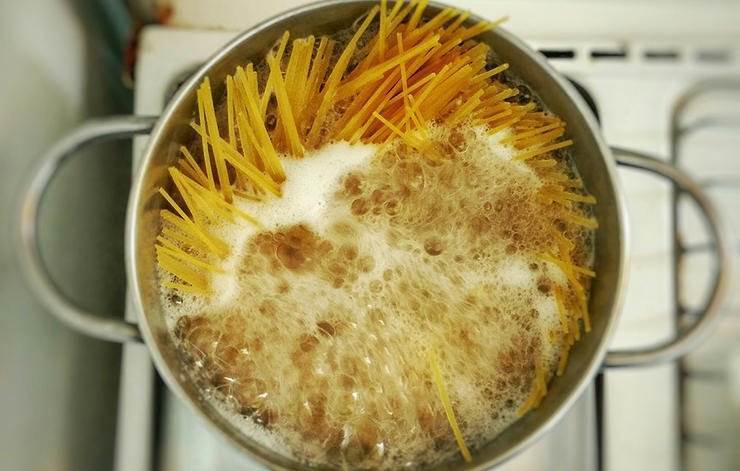
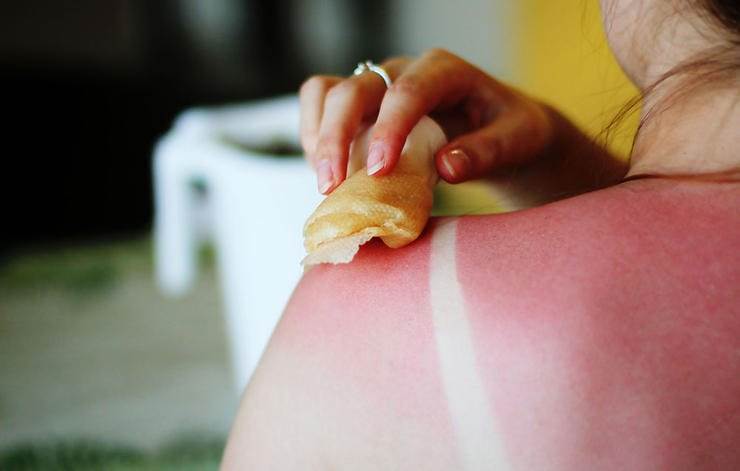
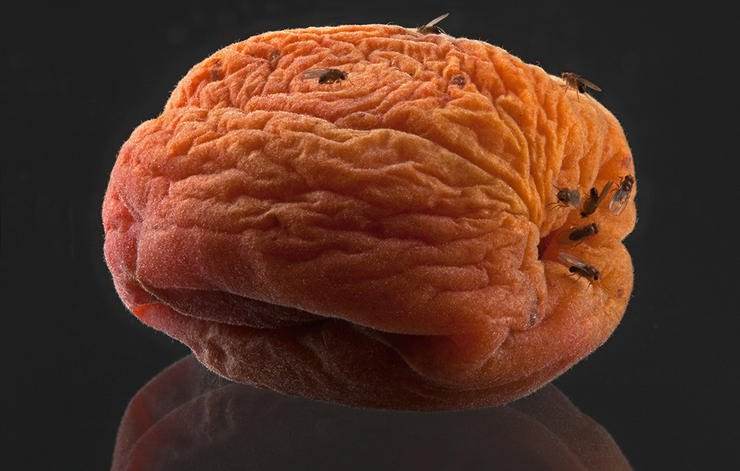
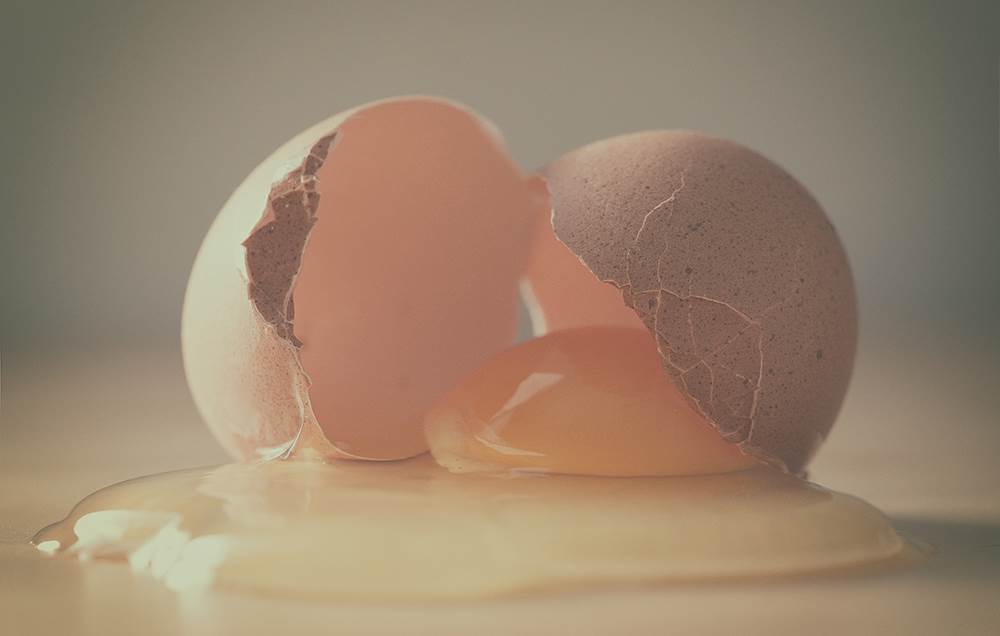
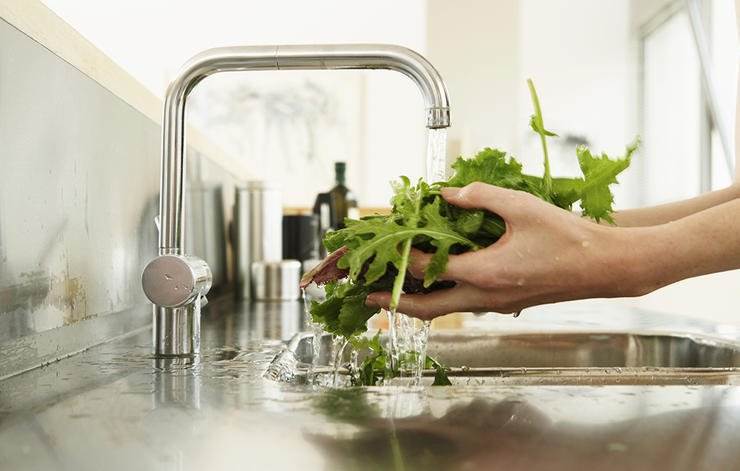
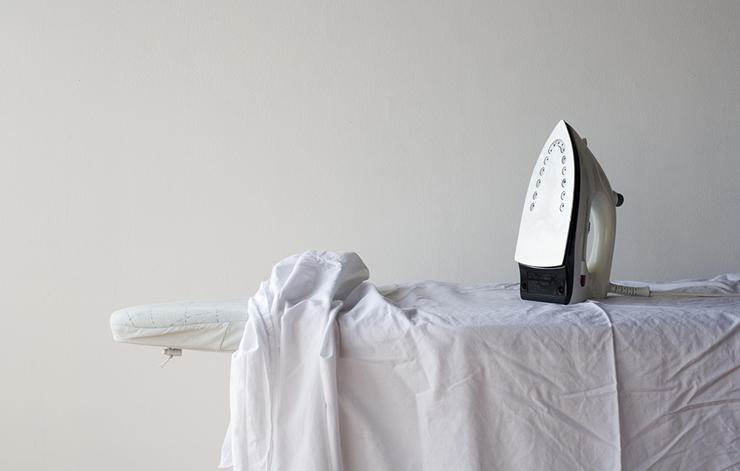
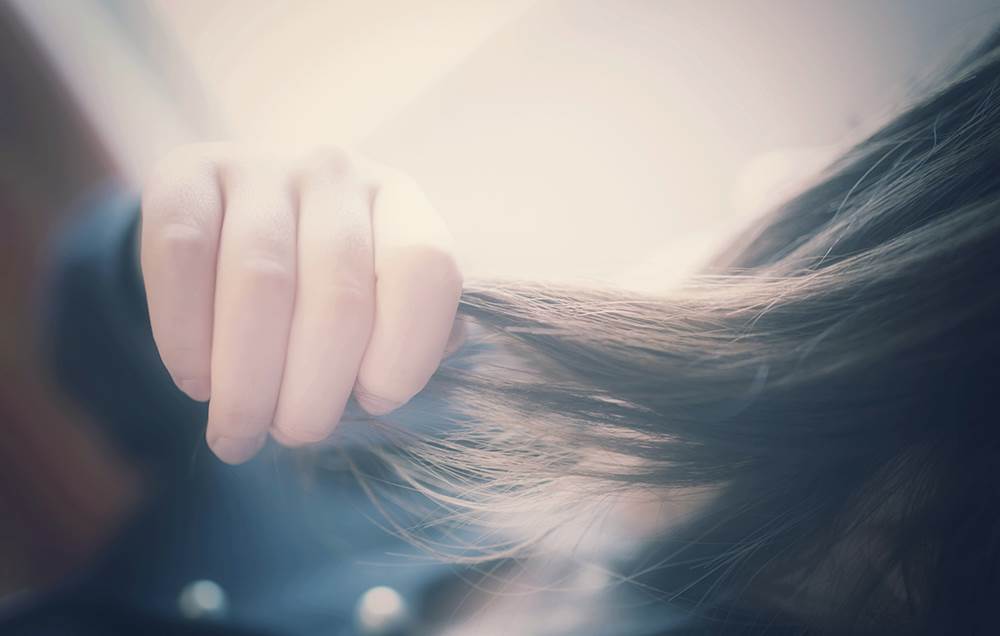
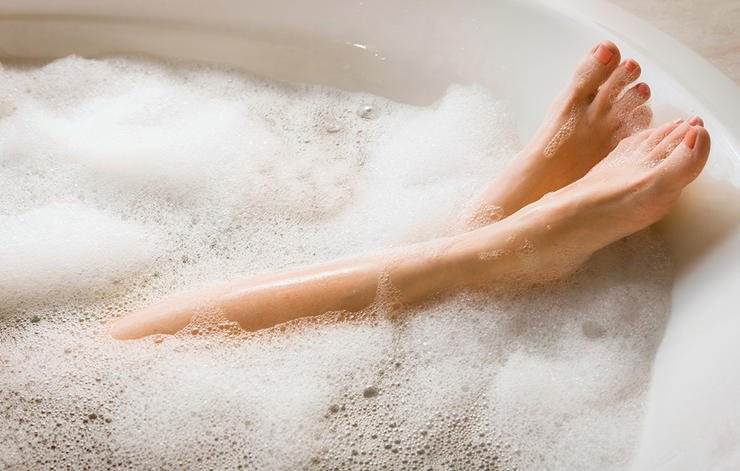
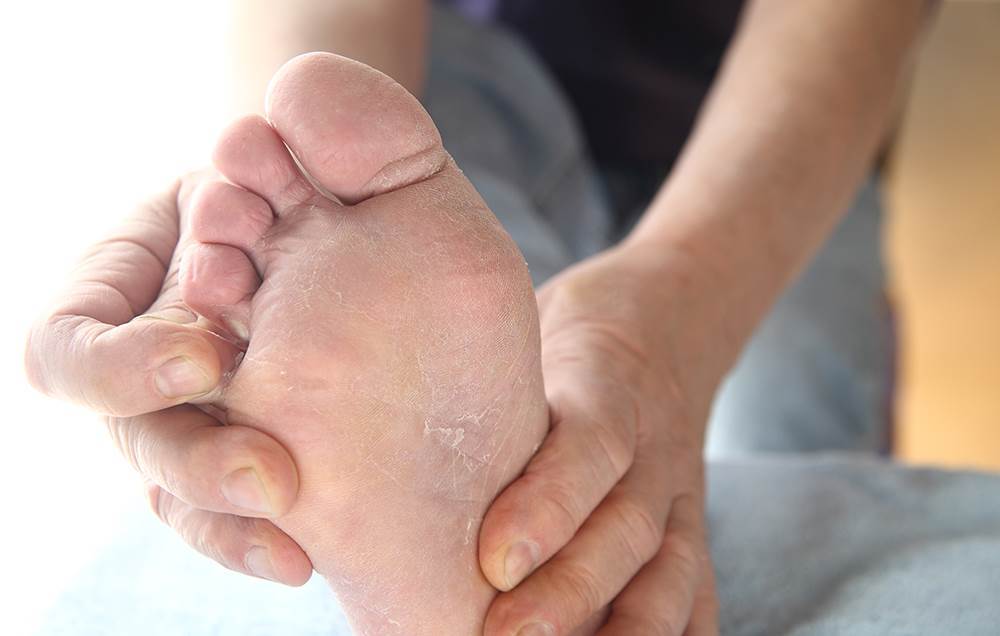

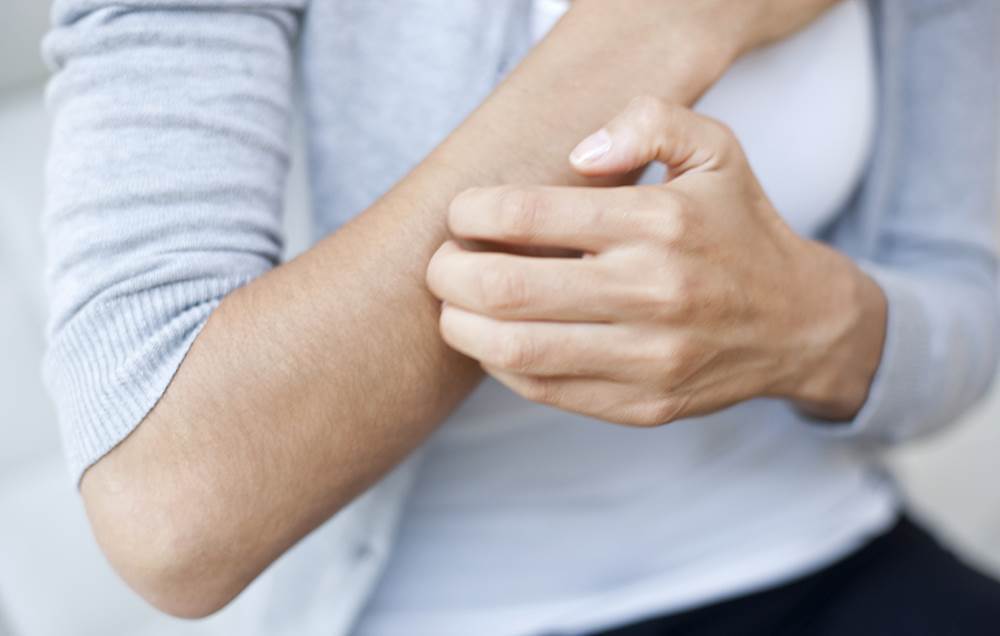
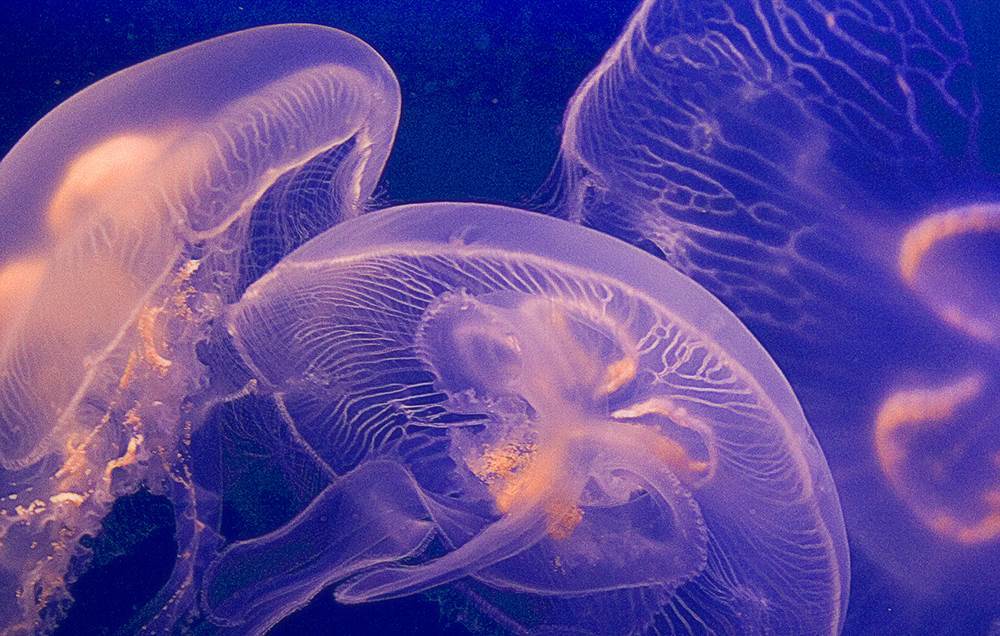

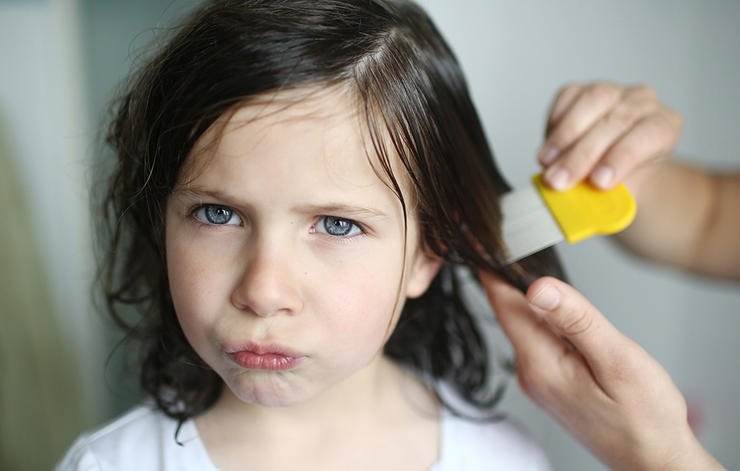
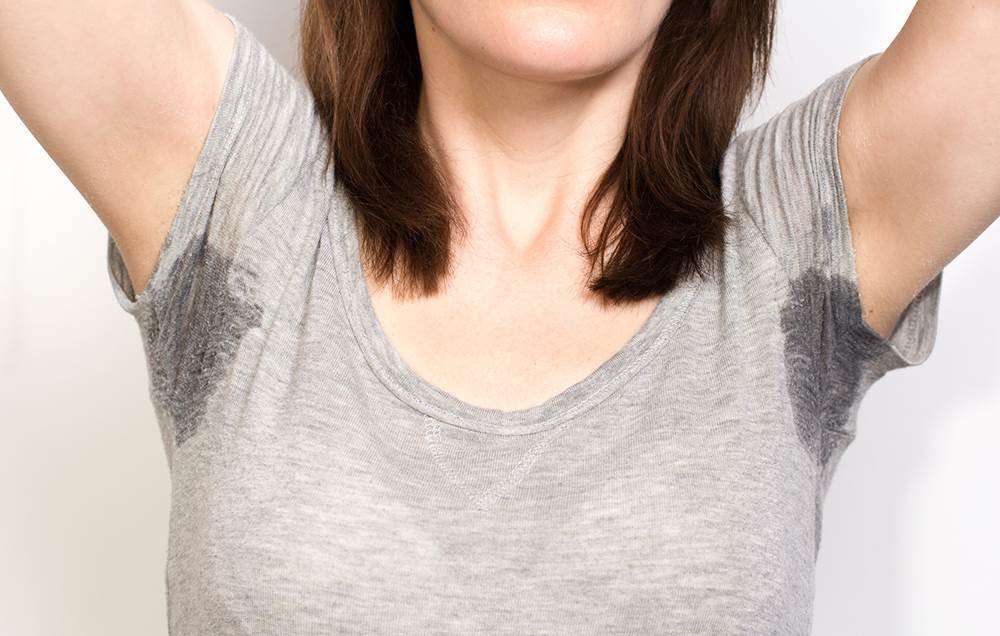

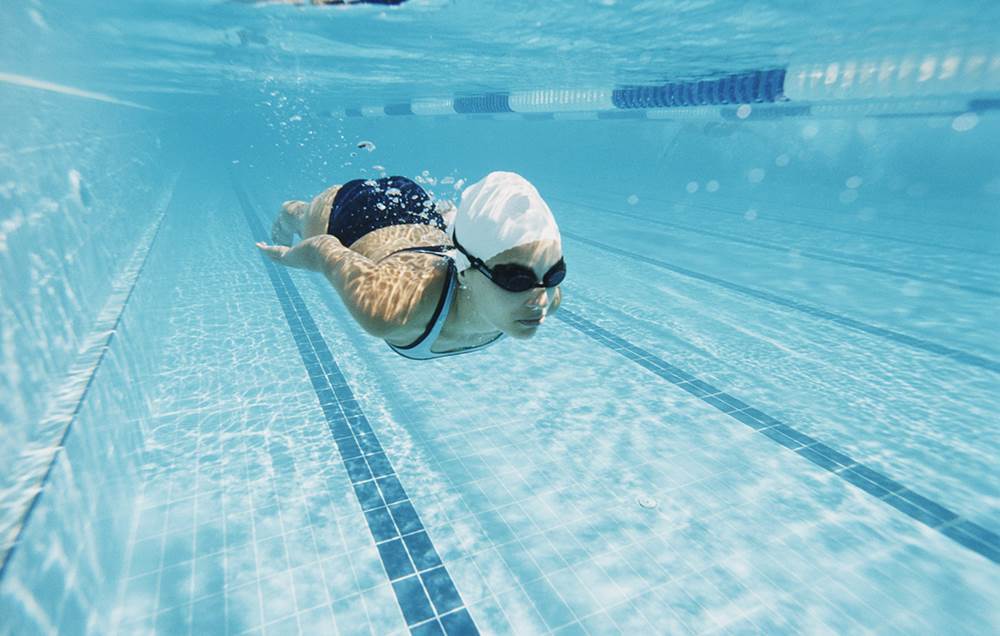
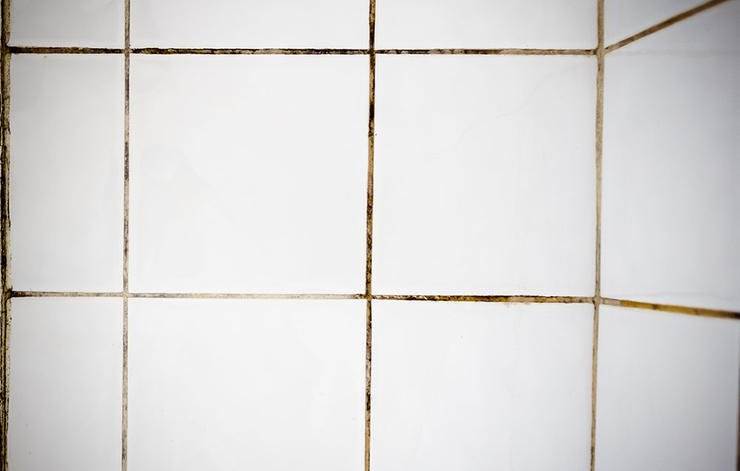
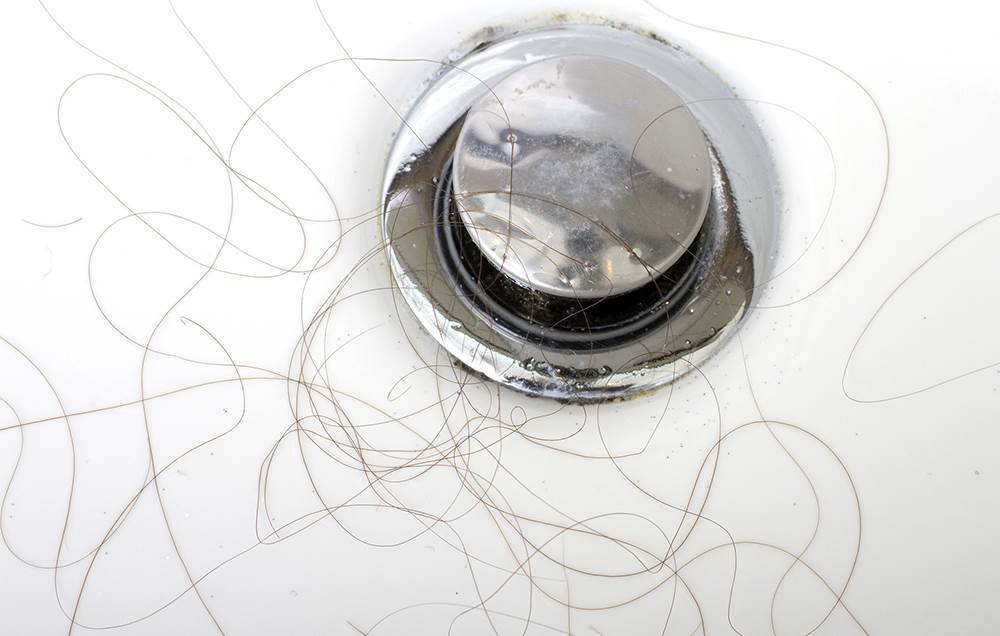
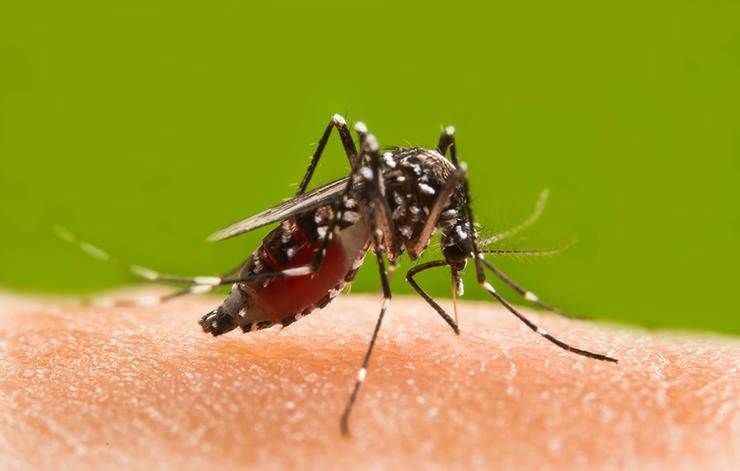
1. Cook fluffier pasta.
Though it can be tempting to add oil to the cooking water to keep your pasta and rice from sticking together, doing so can prevent sauce and seasoning from adhering to the grain, leaving you with a bland meal, says nutrition specialist Lisa Suriano. Instead, try adding white vinegar to your water (three tablespoons of vinegar per 4L of H20).
"Pasta becomes sticky because our water tends to have a higher pH," says Suriano. "This causes the outside shell of the grain to break down and pulls starch into the cooking water. Adding vinegar will adjust the pH level and help you avoid a (literal) sticky situation."
2. Soothe a sunburn.
"When your skin experiences a sunburn, the blood vessels in the skin dilate, triggering an inflammatory reaction," says Dr Jacquline Schaffer. "That damage causes pain and blistering." Vinegar contains antiseptic properties that can not only kill germs, but also relieve pain and inflammation. Placing cool compresses on your sunburn—soaked in a mixture of white vinegar and water (to dilute the acidity)—can soothe the sun damage and encourage the healing process, says Schaffer.
3. Trap fruit flies.
"Fruit flies use their sense of smell to find fermenting products, regardless of their own safety," says cleaning expert Lauren Haynes. That's why they just can't help themselves when they spot a piece of over-ripe fruit. To make a trap, pour some vinegar and mashed fruit into a jar. Roll a piece of paper into a cone and stick it in the jar, narrow opening down. Once trapped inside, the flies won't be able to get out.
4. Substitute eggs.
If you're elbow-deep in a baking project and forgot to pick up eggs at the store, have no fear! Just mix one teaspoon of vinegar with one tablespoon of baking soda for every egg needed. "The combination of baking soda and vinegar causes dough to leaven, much like eggs do," says Suriano.
5. Clean your greens.
Vinegar may help remove surface bacteria from leafy greens. Pre-soak greens for five minutes (using ½ cup vinegar per two cups water), then rinse thoroughly. Drain the greens strainer-style and dry with a clean paper towel, which can help remove more bacteria. (But take heart: A vinegar rinse may slightly affect texture and taste.)
6. Release wrinkles from clothing.
Vinegar acts as a natural alternative to fabric softener, says Haynes. Mist a mixture of one part white vinegar and three parts water onto your clothing and let them air-dry. You can also add a few drops of your favorite essential oil to make your threads smell ah-mazing.
7. Make dry shampoo.
Using vinegar instead of dry shampoo is a simpler, buildup-free way to cleanse your roots between washes. White vinegar contains acetic acid that helps sap bacteria and fungus on the scalp and stops dandruff in its tracks, says cosmetic dermatologist Sonam Yadav, MD. And a little goes a long way: Combine one teaspoon of vinegar per two cups of water, spritz onto your roots, and go on with your day. (Make sure, if you are using dry shampoo, you're not making these mistakes.)
8. Nix vaginal odour.
"The vagina is normally an acidic environment," says Dr Nicole Scott. "Bacteria and parasites thrive when the vagina isn't as acidic, and this can cause odour." Because vinegar contains acetic acid, it can help decrease vaginal pH and restore normal flora, eliminating odour. Soaking in bath water with a small mixture of vinegar (say, half a cup) may do the trick.
9. Fight athlete's foot.
While there's no real scientific evidence that proves vinegar can cure athlete's foot, the natural anti-microbial properties of vinegar can offer some relief. "There are many acids in vinegar, such as malic, lactic, tartaric and citric that can penetrate into the skin cells of the feet and kill the bacteria or fungi causing the infection," says Schaffer. Soak your feet in one part vinegar and two parts water for 15 to 20 minutes, making sure to dry your feet thoroughly afterward. "I suggest repeating this treatment once or twice a day until the infection disappears," she says.
10. Ward off body odour.
"Sweat smells under your armpits because they contain apocrine and sebaceous glands, which release pungent-smelling bacteria when you experience stress, hormonal changes, or anxiety," says Schaffer. Because vinegar is a natural antiseptic, it can reduce body odour by killing the unwelcome bacteria.
11. Calm irritated skin.
When your skin comes into contact with an irritant and morphs into a red itchy mess, the obvious solution is to identify what's causing the reaction and avoid it in the future—but in the meantime, you can douse the affected area with vinegar, which works as a neutralising agent to calm the skin, says Dr Brunilda Nazario. "Just make sure to dilute the vinegar first if the area is already red and inflamed," she says.
12. Relieve a jellyfish sting.
"The tentacles of a jellyfish inject a venomous capsule under your skin, causing intense burning, itching and throbbing if you're stung," says Nazario. "But sometimes these capsules aren't visible to the naked eye and continue to release toxins into the skin." (Shudders.) Applying vinegar to your skin immediately after a jellyfish sting helps prevent further release of the toxins. To relieve the pain, take an over-the-counter pain reliever or immerse the area in hot water).
13. Absorb odours.
If you're famous for burning meat on the barbecue, think of vinegar as your partner in crime. "White vinegar absorbs and neutralises odors," says Haynes. "It's slightly acidic, so it will break down the smoke and tar molecules that create the smell." Place a cup of vinegar in every room affected by the smoke. And to remove the smoke odour from washable items, add one cup of white vinegar during the wash cycle, she says.
14. Evict head lice.
Rinsing your child's hair with white vinegar before shampooing and medicating may help dissolve the glue that holds the nits to the hair shafts.
15. Remove sweat stains.
Those yellow stains that strike your favourite tees are basically the worst—thanks a lot, stress sweat. Fortunately, the acidic nature of vinegar makes it a great prepping agent, says Haynes. Just pour a small amount of white vinegar directly onto the stain and gently rub it into the fabric before washing.
16. Revitalise windshield wipers.
If your wipers are starting to streak and stick, consider dampening a cloth with white vinegar and running it down each blade. The acetic acid in the vinegar cleans the blades, and a coating is left behind that makes the wipers less prone to frost during chilly weather, says Haynes. If the temperature is above zero, you can use a second cloth with water to remove any residual vinegar.
17. Treat swimmer's ear.
Swimmer's ear is an infection of the ear canal—moisture and bacteria get trapped in the canal and cause it to become inflamed, swollen and super painful, says Nazario. Milder cases can be treated at home with an eardrop mixture of one part vinegar and one part water. "The acidity in the vinegar helps prevent bacteria from growing," she says. As for severe cases, they require antibiotic drops.
18. Whiten grout.
Sayonara, bleach: White vinegar is just as effective, and way safer. "Combined with baking soda, it will cause a reaction that will help dissolve the nasty buildup around your bathroom tiles," says Haynes. Create a paste from baking soda and water and apply it to the grout. Spray the area with a 1:1 mixture of vinegar and water. Let it sit for a few minutes before scrubbing with a brush. Rinse with warm water when you're done, and voilà!
19. Unclog your drain.
Vinegar and baking soda expand when combined, and that pressure essentially breaks up the clog and pushes the loosened material through the pipes, says Haynes. Start by pouring ½ cup of baking soda down the drain, then do the same with a ½ cup of vinegar and quickly cover the drain. Once it stops fizzing, pour another ½ cup of vinegar and cover again. Let it sit for 15 to 20 minutes before carefully pouring a few litres of boiling water down the drain to flush everything through. "For hard or stubborn clogs, you may have to repeat the process two or three times until the drain gets completely de-clogged," says Haynes. (One caveat: This method only works for sluggish drains with no standing water in the way.)
20. Repel mosquitos.
Spraying vinegar onto exposed skin or clothing can help protect you from pesky mosquito bites. "Mosquitos tend to dislike the intense scent and bitter taste of white vinegar," says Amy Lawhorne, vice president of a mosquito control company. Mix two parts water to one part vinegar as a spray-on repellent for yourself, your pets and your yard.









